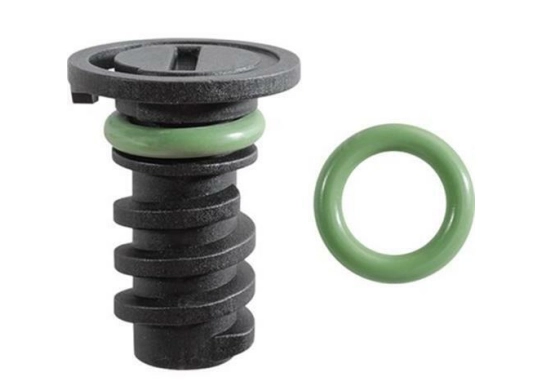drain bolt crush washer
Understanding Drain Bolt Crush Washers Importance and Applications
In the realm of automotive and mechanical engineering, the importance of small components is often underestimated. One such component, the drain bolt crush washer, plays a critical role in ensuring the integrity and efficiency of fluid retention systems in various machinery, including automobiles, motorcycles, and industrial equipment. This article aims to explore the function, materials, and applications of drain bolt crush washers, highlighting why they are indispensable in modern engineering.
What is a Drain Bolt Crush Washer?
A drain bolt crush washer is a sealing component placed between the drain bolt and the surface of the base material it is securing. Its primary function is to prevent leaks from the drain bolt area, which could otherwise lead to fluid loss and potential damage to the machinery. The washer is designed to deform, or crush, when the drain bolt is tightened, creating a tight seal that accommodates minor imperfections in the surfaces it joins. This deformation is crucial for maintaining a leak-free operation, especially in high-pressure or high-temperature environments.
Materials Used in Crush Washers
Drain bolt crush washers are made from a variety of materials, each selected for specific applications based on their properties. Common materials include aluminum, copper, and rubber.
1. Aluminum Washers These are lightweight yet strong, offering excellent resistance to corrosion. They are commonly used in automotive applications where the need for durability against various engine fluids is paramount.
2. Copper Washers Known for their malleability, copper washers provide a reliable seal even in high-temperature conditions. They are often found in automotive oil pans or hydraulic systems.
drain bolt crush washer

3. Rubber Washers These are used in applications where flexibility and adaptability are essential. Rubber washers can create a seal on uneven surfaces and are typically utilized in plumbing and household appliances.
The Importance of Proper Selection and Maintenance
Selecting the right crush washer for your application is critical. Using an inappropriate washer can lead to leaks, which may result in fluid loss and increased maintenance costs. Therefore, it’s essential to consider factors such as the type of fluid, operating temperature, and pressure conditions when choosing a crush washer.
Maintenance is equally important. Over time, crush washers can degrade due to heat, exposure to chemicals, or frequent removal and reinstallation of the drain bolt. It is advisable to inspect washers regularly and replace them whenever service work is performed on the associated systems. Doing so minimizes the risk of leaks and potential damage to essential components.
Applications of Drain Bolt Crush Washers
Drain bolt crush washers are widely utilized across various industries. In the automotive sector, they are commonly found in oil pan bolts, transmission fluid drain plugs, and coolant systems. In industrial settings, they are essential in piping systems where fluid needs to be contained reliably. Even in aviation, crush washers are used in fuel systems to prevent leaks, ensuring safety during flight operations.
Conclusion
Although small and often overlooked, drain bolt crush washers are critical components in maintaining the efficiency and safety of various mechanical systems. Understanding their function, material composition, and proper maintenance is essential for anyone working in engineering, mechanics, or related fields. By ensuring the correct washer is used and maintained, one can significantly extend the operational life of machinery while avoiding costly leaks and repairs. Therefore, the next time you perform maintenance on your vehicle or machinery, don’t underestimate the humble crush washer; it carries a significant weight of responsibility in fluid retention and system integrity.
-
Understanding the Front Main Engine Seal: Purpose, Maintenance, and Installation
News Jul.29,2025
-
Understanding O-Rings and Seal Rings: Types, Applications, and Custom Solutions
News Jul.29,2025
-
Understanding Crankshaft Oil Seals: Rear Seals, Pulley Seals, and Their Role in Engine Integrity
News Jul.29,2025
-
The Importance of Front and Rear Crankshaft Seals in Engine Performance and Oil Management
News Jul.29,2025
-
Crank Oil Seals: Functions, Types, and Cost Considerations in Engine Maintenance
News Jul.29,2025
-
A Comprehensive Guide to O-Rings and Seals: Types, Materials, and Global Applications
News Jul.29,2025
-
Mastering Diesel and Performance Engine Maintenance: A Guide to Critical Oil Gaskets
News Jul.28,2025
Products categories















